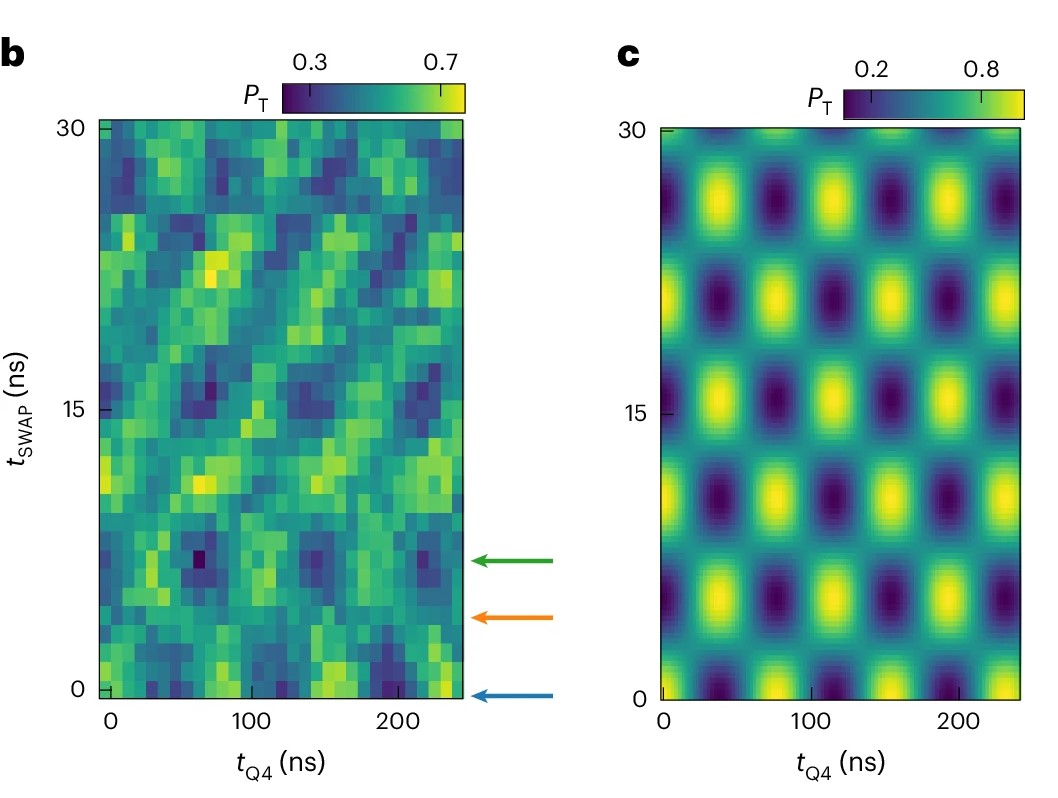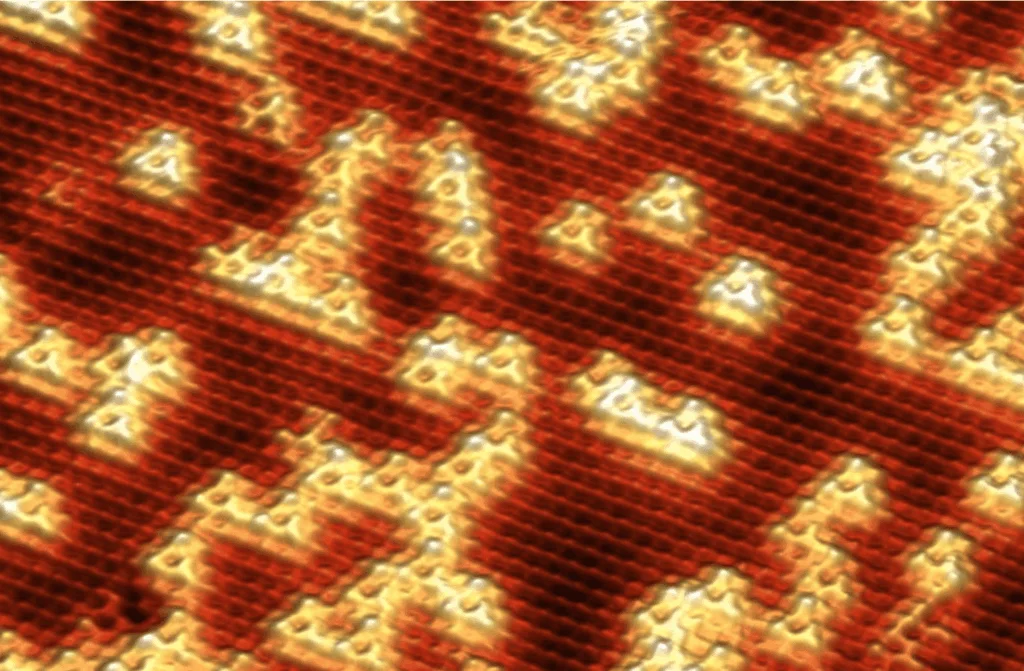Insider Brief:
- Researchers at QuTech successfully controlled a four-qubit system using eight germanium quantum dots, advancing semiconductor-based quantum computing. Their study, published in Nature Nanotechnology, highlights improvements in qubit initialization, readout, and control.
- The team implemented universal single-qubit and two-qubit gates, achieving single-qubit fidelities above 99.49%. Their results demonstrate that germanium-based singlet-triplet qubits offer precise and scalable quantum control.
- Researchers successfully transferred entanglement between non-adjacent qubits using entanglement swapping, achieving a 75% fidelity.
- The study reinforces germanium’s advantages, including spin-orbit coupling, low charge noise sensitivity, and electrical control. Future work will focus on improving fidelity, scaling qubit arrays, and refining error correction techniques to move toward full-scale quantum computation.
- Image Credit: Image Credit: Zhang et al. 2024, Figure 4, Nature Nanotechnology, https://doi.org/10.1038/s41565-024-01817-9
PRESS RELEASE — In a recent post, QuTech announced they have successfully demonstrated a four-qubit system using eight germanium quantum dots, highly relevant for the continued development of semiconductor-based quantum computing. Their study, published in Nature Nanotechnology and featured on the February 2025 cover, highlight advancements in qubit initialization, readout, and control.
Semiconductor Qubits and Scalable Quantum Computing
A large-scale quantum computer relies on stable qubits that can be precisely controlled and entangled. Semiconductor spin qubits, particularly those based on germanium, offer advantages such as scalability and compatibility with modern chip fabrication processes. In this experiment, the QuTech team constructed a 2×4 quantum dot array, where eight interacting spins encode four qubits. The researchers achieved high-fidelity control through gate electrodes, demonstrating precise manipulation of qubit states and efficient quantum information transfer.
The study also highlights key developments in qubit control. The researchers implemented universal single-qubit and two-qubit gates, an essential requirement for building more complex quantum circuits. Their approach used SWAP-style two-qubit gates, achieving high gate fidelities, with single-qubit operations reaching above 99.49% accuracy. These results indicate that singlet-triplet qubits in germanium can be manipulated with high precision, making them strong candidates for scalable quantum architectures.

Another advancement in the study is the successful transfer of quantum information across multiple qubits. The researchers entangled the first and second qubits, then sequentially moved the entanglement through the third qubit to the fourth qubit, resulting in an entangled state between the first and fourth qubits. This process, known as entanglement swapping, reached a fidelity of 75%. The ability to transfer entanglement between non-adjacent qubits is a crucial capability for quantum networks and quantum error correction.
The research also reinforces the unique advantages of germanium-based qubits. Unlike qubits in silicon, germanium qubits benefit from intrinsic spin-orbit coupling, allowing for fast manipulation. They also exhibit low sensitivity to charge noise, improving qubit stability, and can be controlled entirely through electrical signals, reducing the need for complex microwave hardware. These properties position germanium as a promising material for future quantum processors.
Moving the Goalposts
In the release, team lead Lieven Vandersypen spoke to the rapid progress made in the field, noting that what was once extremely difficult a decade ago has now become more feasible: “Along the way, we are getting better at building and operating systems of multiple qubits. Our current levels of control, understanding and engineering skills were unthinkable, let’s say, ten years ago. What was extremely hard then has become easy now. It’s kind of our motto: more, better, easier. Constantly moving the goalposts is essential if we want to arrive at full-scale quantum computation.”
The results from QuTech demonstrate that semiconductor quantum dots can support universal qubit control, potentially contributing towards building larger, more stable quantum processors. Future work will focus on further improving qubit fidelity, scaling to larger arrays, and refining error correction techniques to bring full-scale quantum computing closer to reality.















